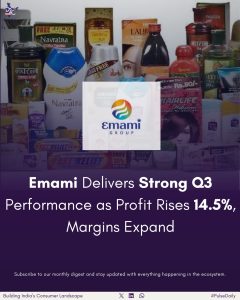
Vama, a virtual spiritual platform in Delhi, is about to secure ₹23.87 crore (about $2.7 million) in its pre-Series A round. Wavemaker Partners is leading the investment, with help from 500 Global, Venture Catalyst, 9Unicorns, Silver Needle Ventures, Sadev Capital, and some angel investors.
According to regulatory filings, Vama’s board has given the go-ahead to issue 4,433 pre-Series A1 compulsory convertible preference shares at ₹53,466.8 each. Wavemaker Partners is putting in the most at ₹11.37 crore, followed by 500 Global at ₹4.37 crore and Silver Needle Ventures at ₹3.2 crore. Others involved are 9Unicorns (₹1.59 crore), Venture Catalyst, and angel investors like Alok Nanavaty, Harit Nagpal, Swati Parikh, and Mahesh Kamdar. Back in June 2025, Wavemaker already invested ₹2.57 crore in Vama, showing they’re consistently confident in Vama’s business approach.
Entrackr estimates that this round values Vama at around ₹149 crore (about $17 million) after the money is in. So far, Vama has raised about $5 million, making it one of the newer companies expanding in a specialized market. After this round, Wavemaker will own 18.18% of the company, the co-founders will still have 33.71%, and the new investors, 500 Global and Silver Needle Ventures, will have 2.84% and 2.08%, respectively.
Manu Jain and Acharya Dev started Vama in 2020. It stands out by offering e-pujas, e-darshans, and astrology advice through its apps. Vama has provided over 1.5 lakh spiritual and astrology services globally, making it a player in India’s spiritual-tech scene.
In fiscal year 2025, Vama’s revenues doubled to ₹19.5 crore, but its losses also increased by 33% to ₹12 crore. The money from this funding round will go towards growing the business, improving the product, and getting more customers.
Other companies in India’s spiritual market include AppsForBharat, which recently raised $20 million, as well as DevDham, Utsav App, Sutradhar, Ghar Mandir, and 27 Mantra. Vama is aiming to be a fast-growing brand in India by combining spiritual services with digital access.
This funding shows that investors are interested in D2C companies that focus on community and culture. Vama’s progress will be watched as an example of how to grow a direct-to-consumer business in India by mixing cultural traditions with what modern consumers want.








